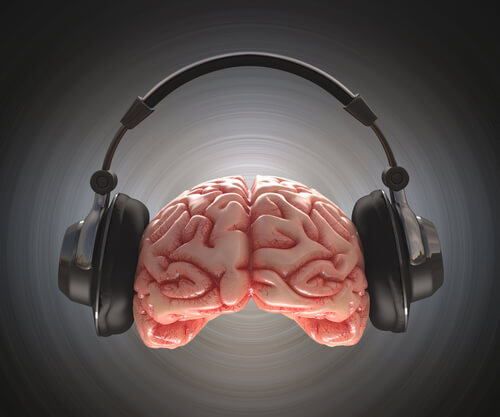Music: Emotion in the Air

Have you noticed that most of the important moments in our lives are accompanied by music? The happy ones, the sad ones, and especially the unforgettable ones. We’re exposed to music even before we’re born, music that can later make us feel less alone in the middle of a storm, on an airplane, or while cleaning the house.
Even when the word “music” is heard, something changes in the mind, without needing to hear any song in particular. And after hearing the first few chords of a song, the body will naturally move to the rhythm. Would you like to know more about the power that music has over us? Continue reading to discover a bunch of interesting facts about music, which most of us can’t live without.
Music is as old as humanity
The first human beings who inhabited the Earth communicated through sounds and silence. They didn’t have the words to say how they felt or what was happening. The intensity and tone of the sounds they used were related to power, strength, wisdom, and even love.
If you tried to say “I’m sorry,” “I love you,” or “I don’t believe you” using only sounds, it would be very difficult, or at least it wouldn’t feel as natural as words. These sounds gradually evolved into words, but some traces of them definitely remain in our ancestral memory.
What happens in the mind when we listen to music?
The process that occurs in the brain when music is perceived is a complex one. There are also significant individual differences in the processing of auditory information.

Sound waves enter through the ears and travel to the brain. Then, the lyrics of the song are analyzed through linguistic processing. Even if another language is used, the brain still analyzes each of the words it hears.
The next step is pretty amazing, and it differs in each one of us. The association areas of the brain begin working tirelessly to bring up different memories and feelings based on what’s stored in the memory.
What if you’ve never heard that song before? Your emotions are still activated because your brain associates the song with things in ways that you can’t always explain. For example, perhaps you like the artist who wrote the song, or it reminds you of something you’ve heard before, or it helps you recreate a situation in your mind, or it helps you relax or gain more energy.
When do we listen to music?
Melodies are always present in our daily lives, and depending on how we feel or what we need, we’ll choose one style of music over another. At the emotional and psychological level, music can be the just the thing you needed to cry over a lost love, to smile over a beautiful day, or to find strength when you thought you couldn’t find it anymore. Sounds can also help some people fight against illness or calm babies who won’t sleep at night.

We choose one type of music for weddings, another for working or studying, another for riding on the subway, and another for meditating or exercising. There are even songs that are specially written for painful moments, like saying goodbye to a loved one.
Why is music so important?
Music can balance your mood and make you happy, and it’s also an excellent way to express how you’re feeling (how many times have you listened to a song and sobbed over the pain you felt in your chest?).

As if this weren’t enough, melodies can help you discover your inner self, give you the motivation to practice certain skills, help you stay awake, and cure illnesses like hypertension, insomnia, anxiety, headaches, and nerves.
When you listen to music, your life is filled with energy. We recommend that you enjoy at least one song that you like each day! Even better if you turn it all the way up!
“Without music, life would be a mistake.”
-Friedrich Nietzsche-
This text is provided for informational purposes only and does not replace consultation with a professional. If in doubt, consult your specialist.








